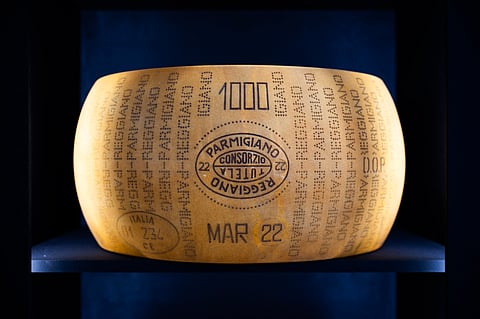
- NEWS
- the EDIT
- COMMENTARY
- BUSINESS
- LIFE
- SHOW
- ACTION
- GLOBAL GOALS
- SNAPS
- DYARYO TIRADA
- MORE

Swiss cheese producers are bracing for a major financial blow after U.S. President Donald Trump announced a 39 percent tariff on Swiss imports, including Gruyere and Emmentaler, sending shockwaves across the alpine country’s prized dairy industry.
The new tariff, set to take effect on Thursday, caught Switzerland off guard. The announcement prompted Swiss President Karin Keller-Sutter and Business Minister Guy Parmelin to fly to Washington for emergency talks with U.S. officials in a last-ditch attempt to negotiate down the duties.
The move left Swiss officials and cheesemakers dismayed, especially after Bern had believed it was nearing a deal for a lower tariff rate. Several companies had already committed to U.S. investments based on the expected agreement.
“The taxes are enormous. Gruyere is a niche product that’s already very expensive to begin with, and unfortunately, people who can still afford Gruyere in the United States will have to pay more for it,” said Anthony Margot, a fifth-generation cheese maturer, speaking to Reuters from his aging cellar.
Margot said calls from “very concerned” American clients began flooding in immediately after the tariff announcement last Friday. Many feared the sudden price hike could knock Swiss cheese off shelves in high-end grocery stores and specialty delis across the U.S.
The United States is a major export destination for Swiss cheese, accounting for about 11 percent of all exports last year, based on Swiss customs data. Gruyere alone—Switzerland’s largest cheese industry—exports roughly 40% of its output, with a third of that going to the U.S.
“We can’t replace a market like the United States overnight,” Margot said, highlighting the challenge of finding alternative buyers in a saturated and highly competitive global cheese market.
Industry leaders and Swiss officials argue that the high quality and controlled production of Swiss cheeses like Gruyere and Emmentaler justify their price point, and that the tariffs threaten decades of branding and international trust.
Gruyere is protected under Swiss and European law as an appellation-controlled product, meaning it must meet strict production guidelines and originate from a designated region. That exclusivity comes at a cost—a cost Margot says will only grow heavier for U.S. customers.
The broader implications of the tariff could strain Swiss-U.S. economic ties at a time when Switzerland is working to boost trade. Officials from Bern are hoping that diplomacy can avert what one trade advisor called a "disproportionate penalty on an industry that stands for quality, not quantity."
